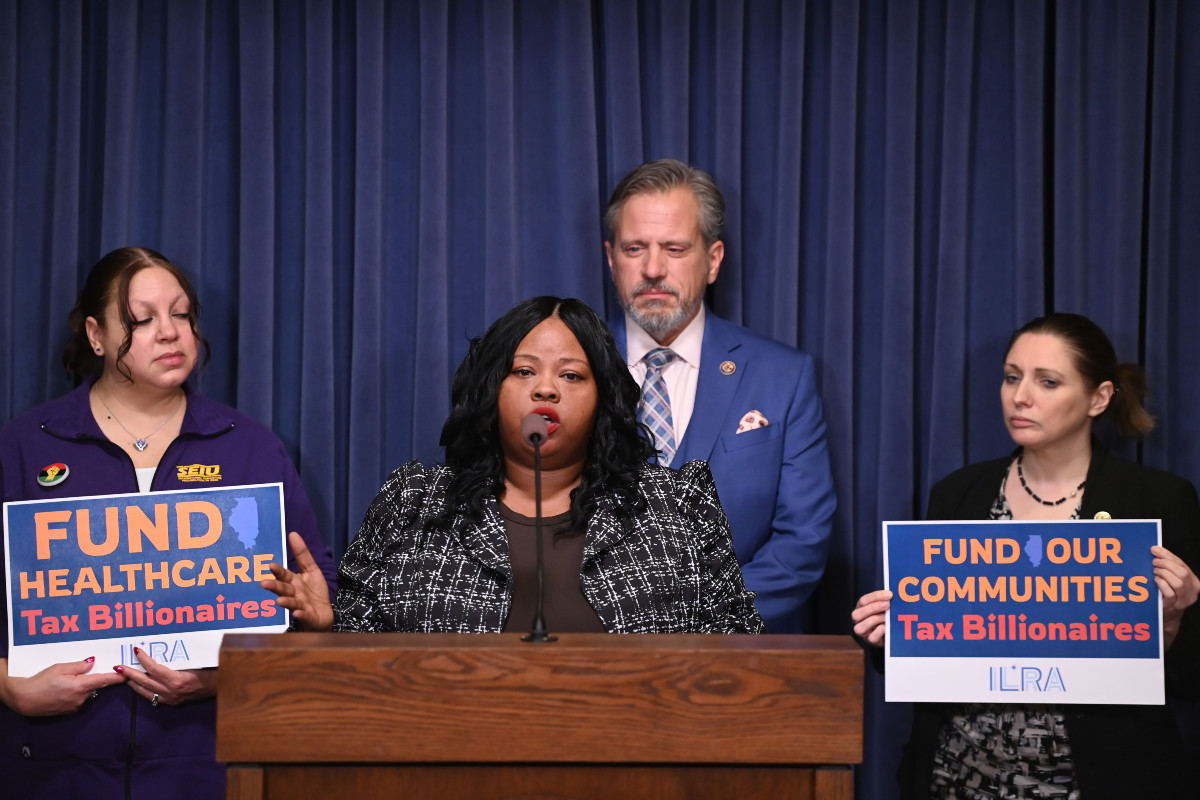- Details
- Category: Press Releases

CHICAGO – State Senator Lakesia Collins (D-Chicago) released the following statement after Governor JB Pritzker’s joint State of the State and Budget Address for Fiscal Year 2027:
“This proposal is a direct response to federal actions that shift financial burdens onto Illinois. We remain committed to protecting our state’s fiscal stability while continuing to invest in Illinois families, workers and communities. Even in the face of federal setbacks, we will uphold our responsibilities and put Illinois first.
“Last year we made meaningful progress toward stabilizing Illinois’ finances while still improving the communities we represent, and this year we are continuing with that focus by making purposeful investments in the implementation of the Department of Early Childhood – an essential program that will offer quality, affordable early learning and child care to families in need.
Read more: Collins responds to governor’s FY 27 budget proposal
- Details
- Category: Press Releases

CHICAGO – State Senator Lakesia Collins announced eight innovative small businesses across the 5th District were awarded grant funding to support their partnerships with Illinois universities.
“Businesses across our community are taking an active role in the development of our economy by creating jobs and opportunities,” said Collins (D-Chicago). “With the innovation grants, local small businesses will get financial assistance to help them compete, ensuring our communities continue to see development and progress.”
The Illinois Innovation Voucher Program connects small businesses with the state’s world-class universities and research institutions. Through competitive awards of up to $75,000, the program enables companies to pursue research and development projects in partnership with a qualified Illinois institute of higher education to support technology validation, accelerate product development and strengthen commercialization pathways.
Read more: Collins announces funding for small business growth in 5th District
- Details
- Category: Press Releases

SPRINGFIELD – State Senator Lakesia Collins joined legislators and advocates at a press conference Wednesday to fight for needed investments in Illinois communities by holding the ultra-rich accountable, closing corporate loopholes and making the tax system more equitable for working families.
“Our goal is to bring in new sources of revenue and additional revenue so our state can continue to operate and serve our communities,” said Collins (D-Chicago). “It is vital now more than ever that the wealthiest of our societies start paying their fair share.”
The initiative, brought to the Senate by Collins, is focused on closing tax loopholes for big businesses and investors. Her proposal, outlined within Senate Joint Resolution 22, would protect Illinois from the federal administration’s budget cuts by intentionally decoupling state tax policy from the federal expansion of tax breaks for corporations, bringing revenue and equity back to Illinois to fund the programs working families rely on.
Read more: Collins joins colleagues to support needed revenue increases and investments
- Details
- Category: Press Releases
SPRINGFIELD – State Senator Lakesia Collins (D-Chicago), Senate Joint Chair of the Illinois Legislative Black Caucus, released the following statement after Sean Grayson was sentenced to 20 years in prison for the Murder of Sonya Massey:
“Sonya Massey’s life was stolen far too soon, and nothing can undo the pain her family and community have endured. While this sentencing cannot bring her back, it is an important step toward accountability for the harm done.
“Our hearts are with the Massey family as they continue to grieve and seek healing. We must continue working to ensure that justice is served and that our communities can have trust in those who are entrusted to protect and serve.”
###
More Articles …
Page 1 of 15




